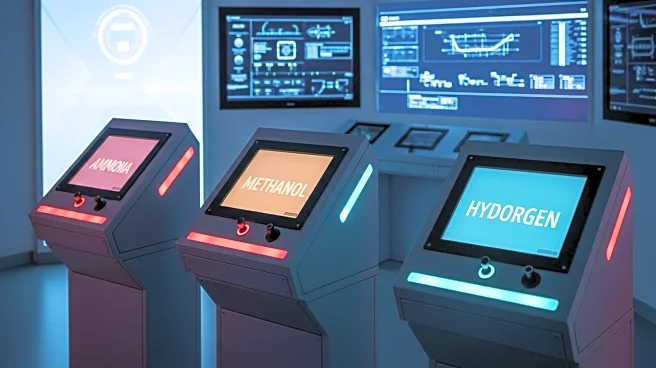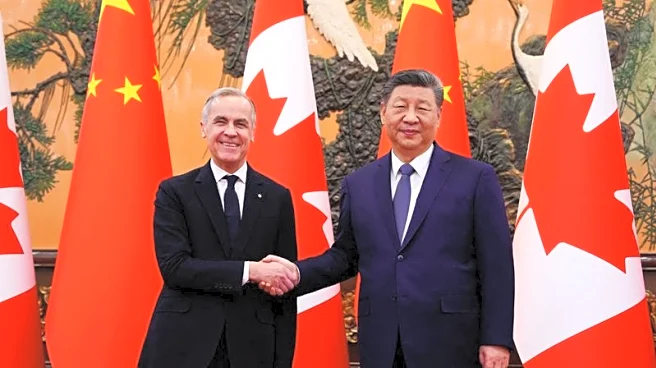What is the story about?
What's Happening?
The Maritime Just Transition Task Force (MJTTF) has launched new training frameworks aimed at preparing seafarers for work on ships powered by alternative fuels such as ammonia, methanol, and hydrogen. These frameworks are designed to support seafarers in both entry-level and senior positions, providing comprehensive instructor handbooks and guidelines for general familiarization programs. The initiative is part of a collaborative project with the International Maritime Organization (IMO) and Lloyd's Register, focusing on decarbonization in the maritime industry. The frameworks will assist maritime education institutions in updating curricula and help shipping companies with personnel onboarding and safety management. This development is part of a broader effort to align with the IMO's review of the 1978 STCW Convention, ensuring seafarers are equipped with the necessary skills for the industry's transition to net-zero emissions.
Why It's Important?
The introduction of these training frameworks is a significant step towards the maritime industry's transition to cleaner energy sources. By equipping seafarers with the skills needed to operate ships powered by alternative fuels, the industry can reduce its carbon footprint and meet international climate targets. This move is crucial for maintaining the competitiveness of the maritime sector as it adapts to new environmental regulations. Shipping companies and maritime administrations stand to benefit from a workforce that is better prepared for the challenges of operating new fuel technologies, potentially leading to safer and more efficient operations. The initiative also supports global efforts to combat climate change by promoting sustainable practices within the industry.
What's Next?
The MJTTF's frameworks are expected to influence the ongoing review of the 1978 STCW Convention by the IMO, potentially leading to updated international standards for seafarer training. Maritime education institutions and shipping companies will likely begin integrating these frameworks into their training programs, with a focus on simulation-based assessments and sea-time training. As the industry moves towards decarbonization, further developments in training and certification schemes are anticipated, ensuring that seafarers remain at the forefront of technological advancements in shipping.

















